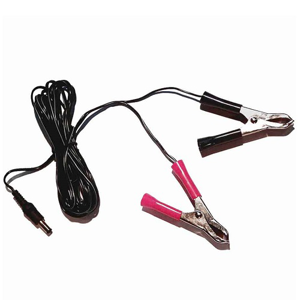The car battery cable is essential to your vehicle's electrical system. It connects the battery to the starter motor and the alternator, allowing the battery to provide power to the rest of the car. Your car won't start or run properly without a properly functioning battery cable.
There are two main types of car battery cables: copper and aluminum. Copper cables are the most common and are preferred by many mechanics because they are more conductive than aluminum.
However, aluminum cables are lighter and less expensive than copper cables, making them a popular choice for some car manufacturers.
Another important factor to consider when choosing a car battery cable is the gauge, or thickness, of the cable. The gauge determines how much current the cable can handle, with lower gauge cables able to handle more current.
It's important to choose a cable with the appropriate gauge for your vehicle to ensure that it can handle the electrical demands of your car.
Over time, car battery cables can become corroded or damaged, which can cause electrical problems in your vehicle. If you notice that your car is having trouble starting or that your lights are dimming, it may be time to replace your battery cable.
Replacing a car battery cable is a relatively simple process that a mechanic or an experienced DIYer can do. However, it's important to make sure that you choose the right cable for your vehicle and follow the manufacturer's instructions for installation.
If you need to replace your car battery cable, there are many places where you can buy one. Auto parts stores, online retailers, and even some big-box stores carry a variety of car battery cables. It's important to choose a reputable retailer and to make sure you are buying a high-quality cable appropriate for your vehicle.
The car battery cable is critical to your vehicle's electrical system. Choosing the right cable and keeping it in good condition ensures your car runs smoothly and reliably. Suppose you're having trouble with your car's electrical system.
In that case, it's always a good idea to have a professional mechanic take a look to diagnose the problem and recommend the best course of action.
1. How do I test the battery cables?
Ans: You can test the battery cables using a multimeter to check for continuity and voltage.
2. How do I replace battery cables?
Ans: You will need basic tools such as wrenches and pliers to replace battery cables. Follow a step-by-step guide or watch a DIY video for instructions.
3. Can I add extra wire to my battery cables if they are too short?
Ans: It is not recommended to add extra wire to battery cables. It is best to replace the cable to ensure proper connection and safety.
4. How thick is a 2 gauge battery cable?
Ans: A 2 gauge battery cable is approximately 35mm in thickness.
5. Are there quick-release disconnect options for car battery cables?
Ans: Yes, there are quick-release disconnect car battery cable terminals available. These terminals allow for easy and quick removal of the cables.
Popular Categories
Popular Categories




